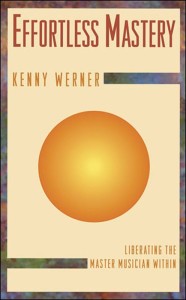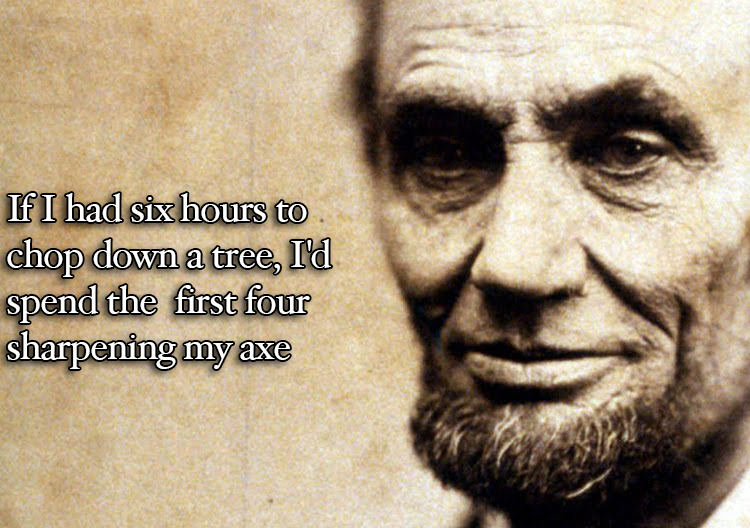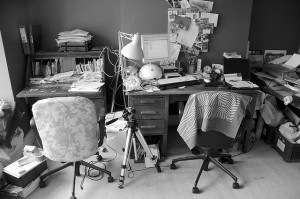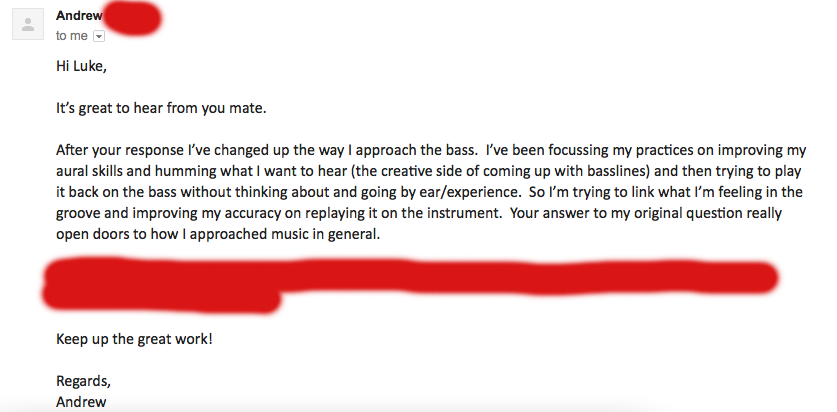Have you ever considered that you could be your own worse enemy when it comes to your playing? It’s an uncomfortable thought – and one that I’ve certainly had many times since I started playing music.
If you’ve ever started playing and not enjoyed what came out of your bass, you know exactly what I mean. Luckily though, the causes are – more than likely – very simple to fix!
Check out this email I got from a fellow bass player and Become A Bassist reader named Andrew:
First of all – this is a great question. I’m sure all of us at some point have really not felt good about what we’ve played. Someone starts playing a sweet drum groove or a cool guitar part, and desperately wanting to join in, you start playing as well.
Only…it sounds bad to you.
The people you’re playing with might think it sounds great, but for you, it’s just not good enough.
So how do you fix it? Let’s break this question down.
“I’m pretty good with my timing and can analyze the groove from existing songs”
This is good news. Timing and groove is everything when it comes to making up bass lines. The ability to listen and look at an existing bass line and figure out why it works and what makes it tick is also an incredibly useful thing to be able to do. If you can figure this out, you’re one step closer to making great sounding basslines.
“But when it comes to me jamming and trying to create a good groove, I’m lousy”
Now Andrew says that he’s ‘lousy’ but I don’t really believe him. Don’t get me wrong – I do believe that he thinks he’s lousy (which could be part of the problem itself!) but there are probably a few things that are going on here.
#1 You’re Over-thinking It!
The fact that Andrew is already analyzing different grooves suggests that his mind is at least a little bit analytical. Personally, I’m the same way. A song will come on the radio, and my mind immediately goes into analysis mode. Not everybody’s mind works this way, but if yours does, you’ll know it’s both a blessing and a curse.
How can the ability to analyze ‘on the fly’ be a curse?

Well, if you have this kind of mind it’s incredibly easy to start analyzing at the same time you’re playing. This is bad news. As soon as you start analyzing what you’re doing, you are going to assign judgement to what you’re playing. Sometimes, it’ll be ‘good’ judgment, but the majority of the time, it’s going to include some kind of negativity. You know those fleeting thoughts that go, “This doesn’t sound good” “This is too simple” “This is too complicated” “It’s not grooving!”
These are all a response of the analytical part of your mind – and it can really mess things up!
The solution to this particular problem is very simple, but very difficult to do. You have to separate the analytical part of your mind when you’re playing and release the need to pass judgment on what you’re playing. As soon as you’re able to do this, you can be more ‘in the moment’ and you’ll almost certainly like what you’re playing better – even if you’re playing the exact same thing.

The things he was playing didn’t sound ‘good’ by normal standards (it was random clusters!) but the point was to train himself to not judge what he was playing and to accept every sound he made as beautiful. It’s a powerful way to frame your playing.
If you can train yourself to not pass judgement on your basslines as you are playing them, you’ll automatically start liking what you’re playing better. Now you shouldn’t use that as an excuse to stop improving as a musician, but it will help you feel better about what you’re doing when you’re playing – and this will definitely make for better playing. If you feel good about your playing, you’ll almost always play better!
#2 You’re not clearly hearing what you’re playing BEFORE you play it
There are two parts to creating music on the spot. First of all there’s the ‘conception‘ and then there’s the ‘execution‘. The conception is how you’re actually hearing the music before you play a single note, and the execution is actually playing it.

When you don’t like what comes out of your bass, it could be that you’re trying to execute without having a clear conception of what you want to play. Someone starts playing something, and you immediately feel the need to dive in without a clear idea of what you want your bass line to sound like. Then because of that, you end up being a little out of time, you don’t lock in with your drummer and all of these other things can happen because you don’t know what you want it to sound like.
There’s a disconnect between your brain and your hands!
With existing songs and bass lines, the conception part is already done for you. You know exactly how it’s supposed to sound and all you have to do is play it; execute it. Out of conception and execution, actually conceiving of an idea is much more creative and some would argue difficult.
So how do you reconnect your brain and your hands?

Start singing a bass line in your head (or even out loud would be better).
Yes, that’s right! The best way to connect your hands to your brain is to use your voice! You’re using your brain to come up with the bassline rather than relying on your fingers to do the work.
Only when you hear that bass line crystal clear in your mind, do you even think about playing a note. Even if it means spending 30 seconds or a minute (or even more) figuring out what you’re going to play.
Do you see guys like George Benson and Keith Jarrett sing while they’re playing? The point of what they’re doing is connecting what their mind hears to what their fingers do, although they use completely different approaches.
Singing or humming something before you play it is like the famous Abraham Lincoln quote

Doing the work before you play a note is just like sharpening your axe. You’re preparing to play something that you know is going to sound great! And you know it’ll sound great because you’ve put in the work before you’ve even played a note.
This process could take some time if you’re new to it, but the more you do it, the faster you’ll get at it. Also, remember at this stage, don’t get too caught up in the analysis. Just sing whatever first comes to your mind. You’ll know pretty quickly whether or not it’s going to work. If what you’re singing seems to work, then you can have a crack at playing it!
Quick side-note – Don’t fall into the trap of singing what you play! There’s a big difference between playing what you hear and hearing what you play…
“Just wondering if you can shed any insight into your thought process when coming up with a groove from scratch?”
This whole idea of conception this IS the way to come up with grooves from scratch. It never starts with playing, it always starts with hearing! Then all you do is transfer the music you hear in your head, to the bass in your hands.
Start with just the first note. Sing it or hum it, and play the note you think it is on your bass. If it’s right, awesome! Move on to the next note. If it’s NOT the note you had in your mind, stop and find it. There are only 12 notes – it won’t be too hard to find!
It’s important that if you mess up a note, don’t just use that note instead of the one you were thinking of. That defeats the whole purpose of using your voice. You don’t want your fingers to tell your mind what to hear; you want your mind to dictate what your fingers play!
Sure – you won’t nail it perfectly every time. You might start on the wrong note or fudge the rhythm you’re trying to play, but that’s alright. You’re creating – and creating is an incredibly messy process! If it were neat, and clean and easy – everyone would do it!

Eventually though, once you’ve really connected your brain to your hands, and they’re really working well together, you’ll be able to play exactly what you want without having to really think about it. This is an incredible feeling…
Now the process will change depending on who you’re playing with. For example, if someone comes up with a drum groove and asks you to play something to it, you’ll play something that (hopefully) works well with the drum groove and complements it. If someone has a song written on guitar and wants you to play bass underneath it, the approach will be so much different because the original material is completely different.
Do This NOW!
I’m not in the habit of promising magical results without putting in work, but there are certain areas where putting in a bit of effort pays off in a huge way! Using your voice to dictate what you play is definitely one place where you can put in a little bit of work and see big improvements fairly quickly.
Just have a look at what Andrew said when I emailed him back giving him this answer a few months ago:
I sent him another message a few months later just to check in and see how he was doing. This is what he said:

Here is my challenge to you – Start using your voice the next time you’re in a position where you need to come up with something on the spot. Give it a try and leave a comment down below about how you did.
###
If you have a question like Andrew did, send me an email through the contact form. I read every message and do my best to help out however I can.
Also, if you haven’t done it already, make sure you join the Become A Bassist newsletter by putting your name and email into the box below. You’ll get a whole bunch of subscriber-only lessons and first look at everything new that comes out of the BAB studio.
Thanks so much for reading. I really appreciate it.
Talk soon,





Hi Luke,
I run into this situation from time to time, I go to play something and it just doesn’t come out the way I intended. I’m going to try your advise, I’m sure I will have positive results, loved the bass chord lessons, they added a lot to my playing. Getting back to not liking what comes out of the bass at times when I’m playing sometimes i think is the result of the sound of the bass also. I seems that sometimes I have some percussive line in my head or a staccato groove but depending on the sound of bass at the time it just doesn’t happen as intended! A lot of time it depends on the bass and amp combo I’m using or the place I’m playing which I find can alter the sound and texture of the bass drastically. I learned to use the acoustics at the moment to produce the best bass lines I can do. I if I’m playing in a room that’s not allowing me to get the percussive sound or whatever sound i want i change my style to fit the sound I’m getting at the time. It actually is kind of neat, sometimes you want to play some “trebley” funky stuff and it just isn’t happening because the room is giving you a bassy or even muddy sound, so I switch my style to playing groove bass lines and not trying to force some kind of slap bass line. I think it makes me a better player to adapt to the surroundings and I don’t get frustrated with something that’s not working at that point in time. It’s neat to be challenged to play something different than intended and make it work!. It makes you feel like you can be a whole different player at any time.
Thanks for the helpful advise
Jeff
Hey Jeff,
You’re totally right about your equipment having an effect on the way you play – and it’s not just how you play, but your equipment can also affect how you HEAR, which is a crazy thought. I see this with guitar players a fair bit. They’ll jump on a Fender Strat, and they’ll play a whole bunch of Jimi Hendrix and Stevie Ray Vaughn licks, but then they’ll pick up a Gibson SG and immediately they go into AC/DC mode, then play on an archtop guitar and all their jazz lines come out. Playing different equipment helps people hear music differently. It’s almost like the ghosts of the great players live inside the instrument sometimes! I’m guilty of the same thing as soon as I pick up a Fender Jazz bass – I go straight to the bridge pickup and go into ‘Jaco mode’. (Or at least my best impersonation)
And you’re totally right about using the sound of the room to your advantage. It took me years of experimenting in different kinds of settings to be able to relatively reliably come up with a sound that worked fairly quickly. It’s part art and part science. I think that’s what makes it so fun for me.
Glad you liked the article and the chord videos, and thanks so much for your comment!
Cheers,
Luke
Dude I feel like I just unlocked my bass guitar after reading this. The aural part is such a key element I have missed, and now I’m coming up with grooves right from my head and it has been transitioning to the bass very well so far. Much appreciation for the tips. Just found the site and excited to learn more, thanks.
Noah! This is awesome! That’s exactly where you want to be. If you can come up with grooves in your mind and immediately transfer them to your bass, you’re golden! Obviously the more you do it, the faster you’re able to do it. Eventually, you’ll get to the point where you’ll hear something and you’ll be able to automatically know how to play it on your bass. It’s super liberating. The way you talk about ‘unlocking’ your bass is a really good description.
Luke
I’ve been mechanical in my learning. I’m at a stage where my confidence with the fretboard is low. I’m working on it (notes, patterns,etc.). There are an endless amount of elements to learn to being a musician. One thing I know…I have hummed or sang some nice lines over songs I know (mostly walking jazz basslines). But at my developmental stage, it’s takes a while to find the notes. And it’s even harder to make the walk as cool as my voice. I’m an older man (67) but that groove has never left me. I sometimes regret I didn’t do this earlier. But it’s what happens going forward. I still hear musicians humming their music. I want to say thanks for this article. This is an important element to me.
Butch
Hello Luke,
On vacation, on an island, without my bass, missing your Blues Class this week. 🙁 So, I thought I’d do some reading and caught this blog entry. I think maybe playing using voice while playing bass might be the most key thing to make into having confidence in what to play. The point you made about George Benson shows how it can be used. It’s the way to bridge the ideas in your head to the instrument!